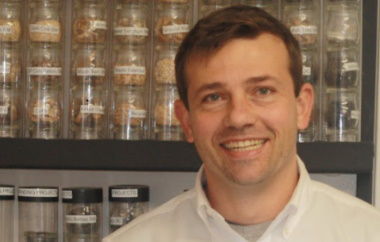PhD in Mechanical Engineering and Biofuels
Current position: President of ARTi (Advanced Renewable Technology International Inc.), United States of America
Research focus: activated carbon and biochar production from biomass feedstock
Bernardo is President of ARTi – a company whose work is dedicated to implementing innovative, sustainable, and renewable environmental technology and agricultural solutions by manufacturing and developing top-of-the line pyrolysis reactors for the production of biochar, activated carbon, and “green” carbon black. This technology is a tool to not only create valuable products from residues, but also to help farmers, composting facilities, homeowners and landscapes integrating sustainable products in their operations and gardens.
Bernardo’s innovative computer-automated tool for monitoring carbon dioxide emissions makes it possible to assess the storage shelf life of agricultural biomasses and biochar stability. As a scientist, activist, educator, and proven innovator in biofuel processes, Bernardo is leading the way to make biofuel production even greener.
2013 Founder and President of ARTi (Advanced Renewable Technology International Inc.)
CV as submitted for the Green Talents award (2012):
Iowa State University, United States of America
Research focus: biochar as a soil additive and tool for carbon sequestration
A scientist, activist, educator and proven innovator in biofuel processes and applications, Bernardo del Campo is leading the way to make biofuel production even greener.
Bernardo del Campo is a biofuels ambassador. After rebuilding his 30 year old Mercedes 300SD to run on biodiesel and cooking oil, he spearheaded the use of biodiesel to fuel Iowa State University’s bus system and is heavily involved in the promotion of biofuel technology among colleagues, community leaders and in the private sector. Today a PhD candidate in Mechanical Engineering, del Campo’s goal is to draw additional environmental benefits from the biofuel life-cycle.
Del Campo’s current research focuses on biochar, a high-carbon by-product from the conversion of biomass to biofuels through a process called pyrolysis. Biochar can be added to soil to improve water quality, increase crop yields and, most importantly, sequester carbon in the soil for centuries. “Biochar can improve soil properties with profound impacts on greenhouse gas emission while providing several other environmental benefits.” says del Campo. “This kind of carbon-negative technology means being able to produce biofuel with a net withdrawal of CO2 from the atmosphere.” Del Campo is currently conducting privately-funded research on fast pyrolysis biochars for carbon sequestration with the goal of marketing them for carbon credit and large-scale field trials.
Del Campo impressed the jury with his innovative computer-automated tool for monitoring biomass decomposition, which makes it possible to assess the storage and shelf life of agricultural biomasses. The jury particularly highlighted his current research on biochar recalcitrance, overall GHG emission, and the overall mitigation profile using this specially modified tool, which it described as a “fascinating approach” to extending the overall environmental benefits of biofuels.






